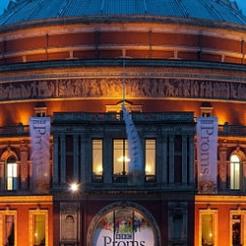The Royal Albert Hall trustees have approved a by-law preventing members from selling their tickets on for profit after controversy last week over ticket sales totalling over £100,000.
Following reports in the national press and on civilsociety.co.uk, the Council of the Corporation of the Royal Albert Hall (its trustees) held a meeting on Thursday where they voted to prevent all its elected members from passing on tickets for more than their face value. The Council encouraged its members to instead use the Royal Albert Hall’s Ticket Return Scheme, which sells such unwanted tickets to the public.
After the meeting, Peta Travis, president of the Hall, said: “Because of its historic and unique constitution established by Act of Parliament, the Royal Albert Hall is unlike any other national charity. We have met with representatives of the Charity Commission to consider how best to adapt our constitution to the needs of a modern charity on several occasions. We are pleased that we shall be meeting them again very shortly.
“None of our trustees has done anything illegal but their ability to sell surplus tickets commercially has clearly caused concern and misunderstanding. I also wish to emphasise that none of the charities which stage events at the Hall have suffered financially from the arrangements which prevailed."
The Charity Commission’s line
A Charity Commission spokeswoman told civilsociety.co.uk that it agrees with the president of the Royal Albert Hall's assertion that the Hall's situation is a “highly unusual case”. As reported last week, the regulatory body is “monitoring [the Royal Albert Hall members’] progress and will indeed be meeting trustees soon to discuss this issue.”
The spokeswoman reiterated that the Commission was first approached by the charity’s trustees about the issue of private benefits received by its members in 2009. She said that the Commission was left “satisfied that the trustees had put in place appropriate plans to address these issues, including the level of benefit received by seat holders. We provided advice and guidance in relation to the implementation of the trustees' own proposals and the governance of the charity.”
She further pointed out that the Council of the Corporation of the Royal Albert Hall met and made their decision last week at their own behest.
The charity community debates
The ethical implications of trustees profiting in this manner have been debated on the civilsociety.co.uk comments board.
User ‘Tom Jones’ found no fault in the Royal Albert Hall trustee’s actions, commenting that: “Debenture seats are commonly sold on at exorbitant prices for sporting events. For example Wimbledon men's finals tickets are on sale for a ‘mere’ £3,212 as I look today.
“My understanding is that debentures are viewed as an investment. Why should Royal Albert Hall debentures be different?”
Additionally, reader ‘Harry O’ stated that “members own their seats which were bought originally on a 999-year lease in 1866 and under the Royal Charter of the same year are able to do whatever they like with them”.
He continued: “Even if the members and trustees sent back their tickets to the Royal Albert Hall for resale the charities would not benefit as the Hall would pay the members for those tickets, not the charities. The best thing for members to do is sell their tickets through [ticketing website] Seatwave, who donate their profits to the charity - so the higher the price of the ticket, the more money would go to Teenage Cancer Trust.”
However, Philip Anthony, director of voluntary sector IT supplier Co-Operative Systems advised he had personal experience in the debate. Realising post-purchase that his tickets for Paul McCartney’s Teenage Cancer Trust benefit gig at the Royal Albert Hall had been sold onto him at a higher rate, and thus resulted in a profit for someone other than the charity, he said that he felt that the idea that a trustee may have been the one profiting "feels a bit 'off'".
Official guidance
In its official guidance, the Charity Commission states that private benefits to trustees must be “incidental" - that a private benefit must be a necessary result or by-product of carrying out the charity's aims. The guidance stresses that the intention must have been to further those aims, and that the amount of private benefit should be ‘reasonable’ according to the circumstances.
The organisation also emphasises that charity trustees must put the interests of their charity first, and that this is quite clear in legal terms: “The law states that trustees cannot receive any benefit from their charity in return for any service they provide to it, unless they have legal authority to do so. Trustees should not be subject to any conflict between their duties to their charity trust and their personal interests, unless the possibility of personal benefit which gives rise to that conflict is transparent.”
The documents The Essential Trustee: what you need to know (CC3) and Payment of Charity Trustees (CC11) are available to download from the Charity Commission website.









